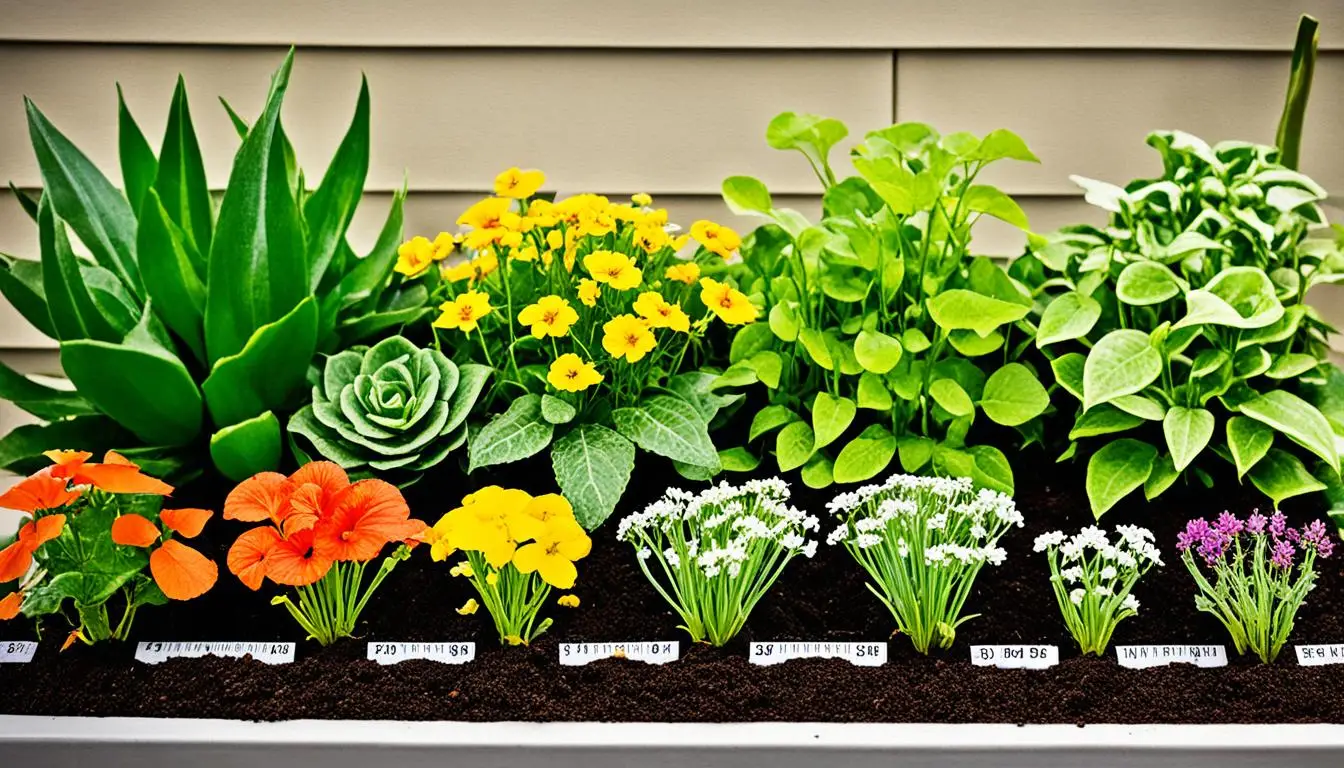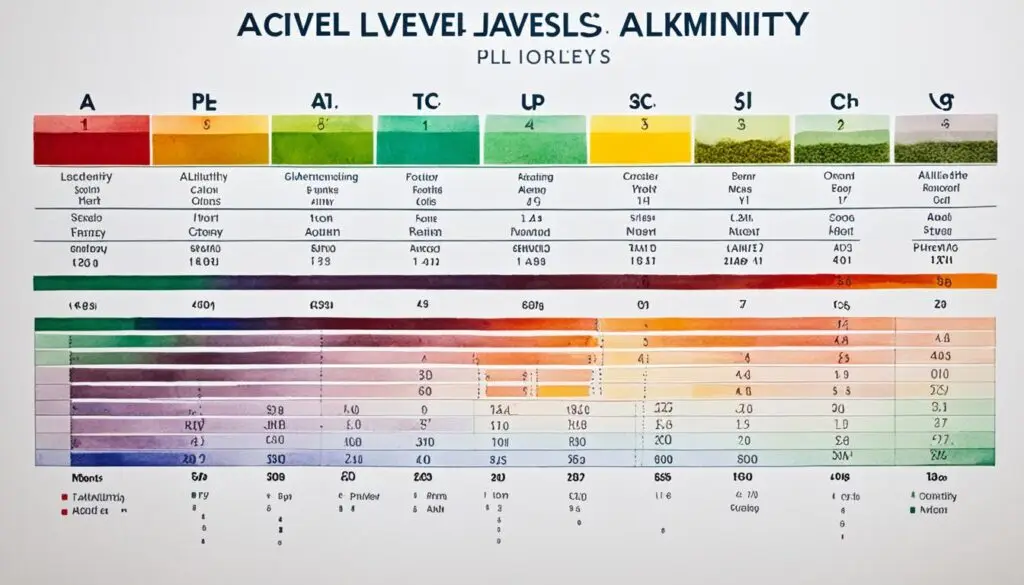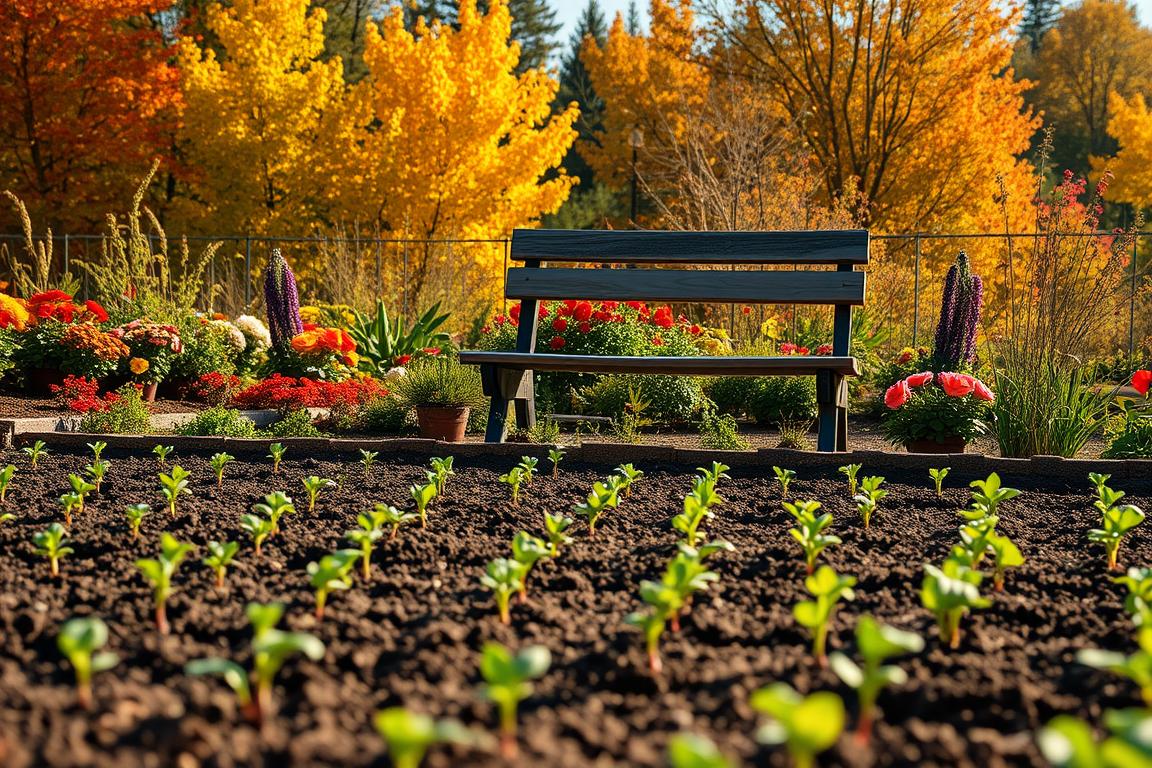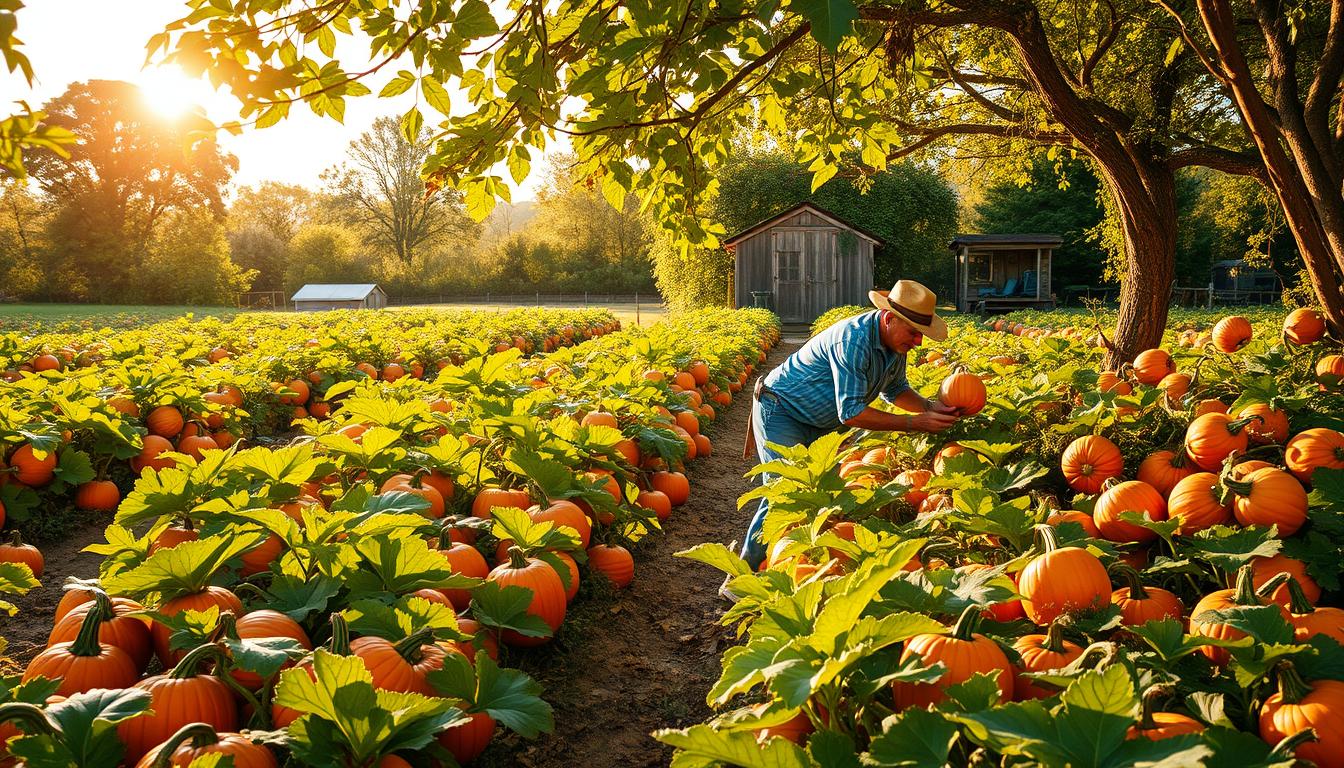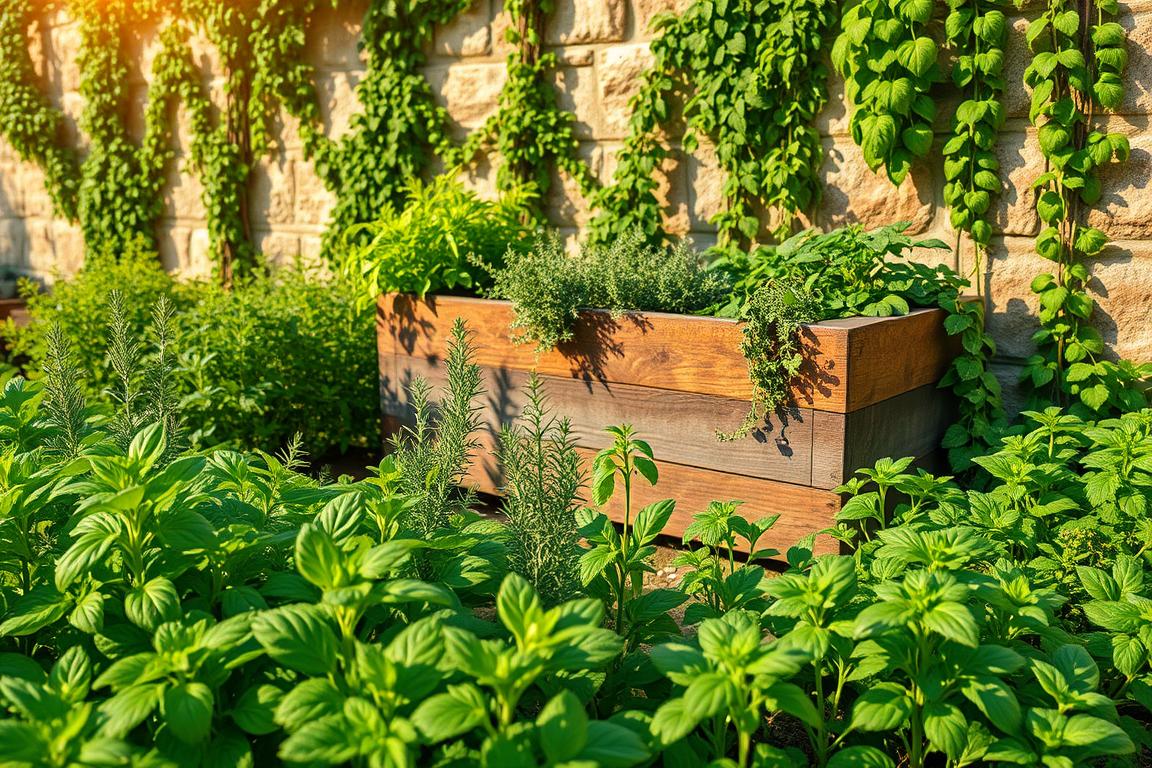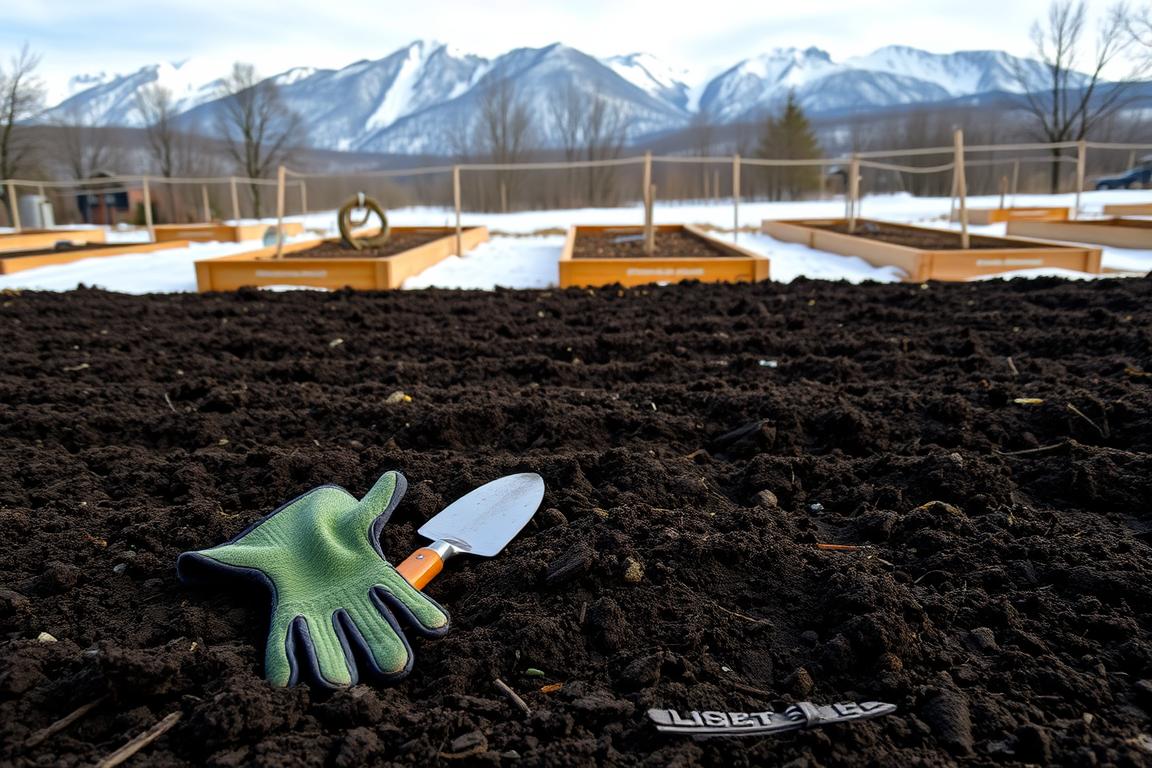Soil is key for plant growth. Knowing about soil pH is important for any gardener. It’s made up of minerals, air, water, and life. The size of its mineral particles affects the soil’s feel and properties. Soil pH is crucial for nutrient availability and plant growth.
Most plants like a pH between 6.0 and 7.0. However, soil pH can change a lot, due to weather or lime in gardens. Keeping the right soil pH is vital. It’s as important as adding organic matter and nutrients. Wrong soil pH can cause plants to lack or absorb too many nutrients, even if they’re there.
Key Takeaways
- Soil pH influences nutrient availability and plant growth.
- The best pH for most plants is 6.0 to 7.0.
- Bad pH levels can harm plants.
- Keeping the right soil pH is crucial for a healthy garden.
- Testing and fixing soil pH is a must.
Soil pH: The Forgotten Factor for Plant Growth
It’s key to know about soil pH for a great garden. Soil pH measures the soil’s acidity or alkalinity. It goes from 0 (most acidic) to 14 (most alkaline), with 7 as neutral. This factor affects how well plants can use nutrients and how they grow.
What is Soil pH?
Soil pH shows if the soil is more acid or base. Plants usually like soil that’s a bit acidic to neutral, with a pH of 6.0 to 7.0. In this range, plants can easily take in important nutrients they need.
The Importance of Soil pH for Nutrient Availability
The soil’s pH level affects which nutrients are available for plants to use. Nutrients like nitrogen, phosphorus, and potassium, along with trace minerals, are affected. If the soil’s pH is wrong, plants might not get enough of these nutrients, which can hurt their growth.
Factors Affecting Soil pH
Many things can change the soil’s pH. This includes the local weather, not enough water, and too much garden lime. These can make the soil too acid or base. It’s important to regularly check and fix the soil’s pH. This helps plants grow well and take in nutrients the right way.
Keeping the right soil pH is vital for a healthy garden. Knowing about soil pH and adjusting it as needed supports plant growth. This way, your garden can be full and healthy.
“Understanding Soil pH and Its Impact on Your Garden”
The Ideal pH Range for Most Plants
The perfect pH level for many plants falls between 6.0 and 7.0. In this range, they can get all the key nutrients they need. This helps them grow strong and look healthy.
Signs of Imbalanced Soil pH
If the soil is too acidic or too alkaline, plants struggle to get the nutrients they must have. You’d notice this if your plants stop growing well, their leaves turn yellow, or they show other signs of not being okay. Keeping an eye on the soil’s pH is key to keeping your garden healthy. It lets your plants get the nutrients they need to do well.
Testing and Adjusting Soil pH
Determining your soil’s pH is vital. It helps you know if the soil is too sour or too sweet. You can do this with a ph testing methods kit or by sending a sample to a lab for a detailed soil testing. Many places, like state universities and private labs, do these soil testing services. They also recommend how to change the pH, if needed.
Raising Soil pH with Lime
If your soil is very acidic, adding lime can help. Lime comes from rocks and makes the soil less acidic. This process, called liming, balances acidity and helps plants get the nutrients they need for gardening success.
Lowering Soil pH with Sulfur
When soil is too alkaline, you might want to use sulfur. Sulfur turns into sulfuric acid thanks to soil microbes. This acid lowers the soil’s pH, making it more acidic. Remember, follow the soil testing recommendations when adjusting soil pH. You’ll know how much lime or sulfur to use for the right ph testing level.
Tailoring Soil pH for Specialized Plants
Most plants do well in soil that’s slightly acidic to neutral. This is between 6.0 and 7.0 on the pH scale. However, some acid-loving plants and alkaline-tolerant plants need soils with more specific pH levels. To help these specialized plants grow, it’s essential to know about the right plant nutrient availability and garden soil health.
Acid-Loving Plants and Their pH Needs
Think of blueberries, azaleas, and rhododendrons. They are acid-loving plants and like soil that’s even more acidic, around 4.5 to 5.5 on the pH scale. Adding sulfur or other acidifying materials can help adjust the soil pH for them. This ensures they get the nutrients they need to grow well.
Alkaline-Tolerant Plants and Their Requirements
Alkaline-tolerant plants are different. Lavender and rosemary do best in slightly alkaline soils, up to 7.5 or 8.0 pH. Knowing your plants’ preferred pH needs is key when you’re planning your garden. Make sure your soil’s health meets the conditions these plants prefer.
Conclusion
Soil pH is vital for your garden’s growth and health. It affects how well plants get nutrients and grow. Knowing your soil’s pH and adjusting it helps plants get the nutrients they need.
Maintaining optimal soil pH is crucial, no matter what you’re growing. By setting the right soil pH for your plants, you make a healthy garden. It’s important to figure out if your soil is too acidic or alkaline. And, you can fix it by testing your soil and adjusting the pH. This way, plants get the nutrients they must have to do well.
Understanding soil pH and its relation to nutrients and plant growth is key. This understanding leads to a successful and beautiful garden that lasts for a long time.
FAQ
What is soil pH and why is it important?
Soil pH measures how acidic or alkaline soil is. It goes from 0 (most acidic) to 14 (most alkaline), with 7 as neutral. The right soil pH supports plant growth by making nutrients available. For most plants, the best pH is slightly acidic to neutral, between 6.0 to 7.0.
How does soil pH affect plant growth and nutrient absorption?
Imbalanced soil pH, too acidic or too alkaline, limits nutrient availability. This leads to problems such as stunted growth and leaf discoloration. It’s key to maintain the right soil pH for good plant health and nutrient absorption.
What factors can influence soil pH?
Soil pH can change due to factors like climate, low moisture, or too much lime. Keeping an eye on and adjusting the soil pH is vital for a healthy garden.
How can I test and adjust the pH of my soil?
Test soil pH with a kit or by sending a sample to a lab. To lower soil acidity, add lime. To lower soil pH and make it more acidic, use elemental sulfur. Always follow the soil test recommendations to use the right amounts.
Are there any plants that have specific pH requirements?
Yes, some plants need a specific pH. Blueberries, azaleas, and rhododendrons like acidic soil. They do best in soil with a pH between 4.5 and 5.5. Alkaline-loving plants like lavender and rosemary can grow in higher pH, up to 8.0. Adjust soil pH as needed for these plants to thrive.


